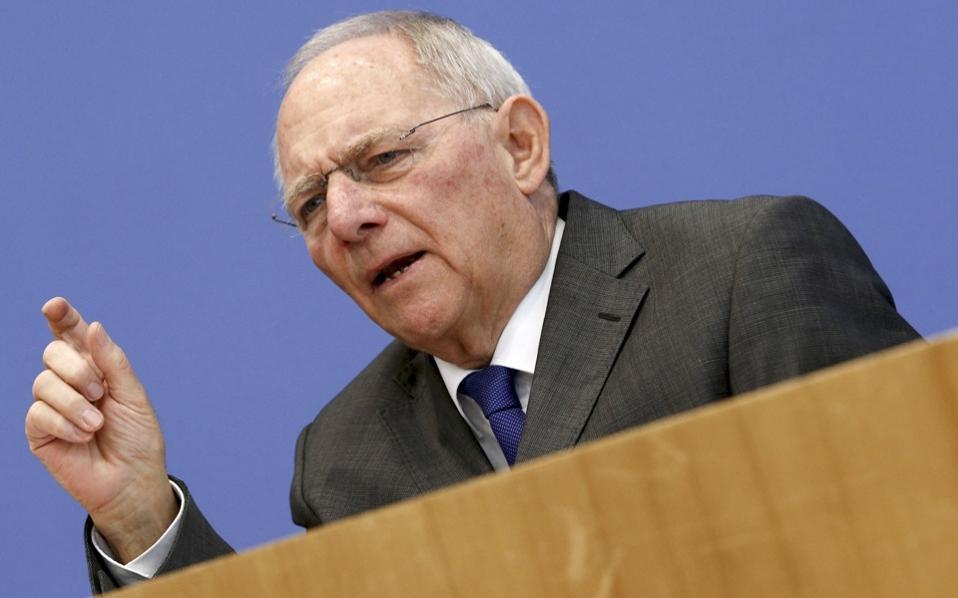German FinMin sees Greek debt cut only with Grexit

German Finance Minister Wolfgang Schaeuble on Wednesday sent a clear message concerning Berlin’s stance toward debt-relief talks for Greece.
“We can’t undertake a debt haircut for a member of the European single currency, it’s ruled out by the Lisbon Treaty,” Schaeuble was quoted by Bloomberg as telling broadcaster ARD. “For that, Greece would have to exit the currency area.”
The German finance minister’s comments came as Greece, its euro-area creditors and the International Monetary Fund find themselves in a deadlock over how to proceed with the Greek bailout. Even though Berlin is eager for the IMF to rejoin the Greek bailout after a two-year hiatus and supports the fund’s demands for more measures, Berlin and the Fund disagree on how to split the burden, with the former calling for large primary surpluses and the latter arguing this would be untenable in the long term without meaningful debt relief.
Schaeuble also expressed the view that Greece’s problem is not its debt, but its flagging competitiveness.
“The pressure on Greece to undertake reforms must be maintained so that it becomes competitive, otherwise they can’t remain in the currency area,” Schaeuble told ARD, raising the specter of Grexit once more.
His comments also came in the wake of an IMF report on Monday suggesting that Greece’s economic reforms are off track and that the country’s debt burden and gross financing needs may become “explosive” after 2030.
Responding to the report on Tuesday, Greek Finance Minister Euclid Tsakalotos said the fund’s assessment failed to account for recent evidence of progress, while Bank of Greece Governor Yannis Stournaras said it was unduly pessimistic.
Although Greek officials say they are keen to secure the resumption of talks with international auditors, the lack of any concrete action means the imminent return of bailout monitors appears unlikely and concluding a pending bailout review at the next scheduled Eurogroup on February 20 will be difficult.
[Combined reports]





